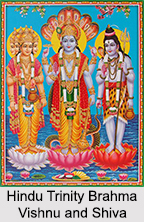 Hindus have assigned many names to the Hindu Gods since time immemorial. Hindus throughout history have formulated many different names and forms for the Divine or Eternal. Among the various Hindu Gods, the Hindu Trinity; Brahma, Vishnu and Shiva are the main worshipped Gods in Hinduism.
Hindus have assigned many names to the Hindu Gods since time immemorial. Hindus throughout history have formulated many different names and forms for the Divine or Eternal. Among the various Hindu Gods, the Hindu Trinity; Brahma, Vishnu and Shiva are the main worshipped Gods in Hinduism.
Some of the Gods that are worshipped by the Hindus are as follows:
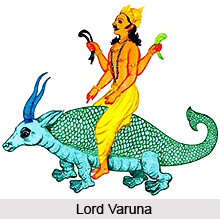 Lord Varuna
Lord Varuna
The people of India also worship the God of water and ocean called Lord Varuna. He is the source of water, which sustains life, the water in the rivers, sea and oceans, and even the rains that fall, and at times causes floods. Lord Varuna rides on Makara which is a type of holy sea-creature.
Lord Kartikeya
The origin of Lord Kartikeya, the symbol of masculine might, has link with the desperation of Gods for the birth of the much-awaited son of Shiva, who could obliterate the ghastly demon, Taraka.
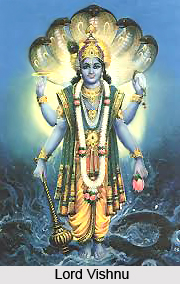 Lord Brahma
Lord Brahma
He is the God of Creation, an important deity among the Hindus. He is seen with four heads representing four Vedas, which is also called the four `Yugas`. Seated on a lotus, Lord Brahma`s `vahana` is the swan. It is believed that he was born from the naval of Lord Vishnu at the end of one cycle to start a fresh cycle.
Lord Vishnu
He is the God of maintenance, protection and sustenance among the Gods of India. He was instrumental in introducing the souls into the cycle of life by Brahma sustaining them. Vishnu not only maintains the universe, but also maintains dharma.
Lord Shiva
Lord Shiva is the God of destruction and is highly revered among the Gods of India. He is greatly worshipped in the form of "lingam" or phallus that is built on a pedestal. Enormous energy of the creator is denoted by the "lingam" which absorbs the creator Brahma, Vishnu and Gayatri Devi in its heart.
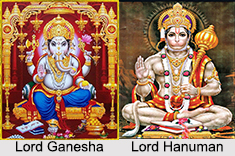 Lord Ganesha
Lord Ganesha
Lord Ganesha is one of the prime Gods of India who is worshipped at the commencement of any important action or venture, related with business or art. Known as "Vighneshwara", he is known to remove all hindrances in the way. He is seen in the form of an elephant head in a human body, with four arms and a huge belly.
Lord Jagannath
This God is the name given to describe a deity form of Lord Krishna. The oldest and renowned Jagannath deity is at Puri in Odisha. The famous Ratha Yatra is organized every year to mark Krishna"s home coming in Mathura. This acquires a huge dimension in Odisha where the wooden cart is pulled by thousands of pilgrims.
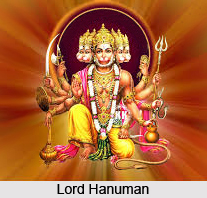 Lord Hanuman
Lord Hanuman
He is also known as "Anjaneya" and is among the most important Gods in the Indian epic Ramayana. He assisted Lord Rama in recovering Sita from the captivity of Ravana and was blessed with enormous energy and power by the Gods.
Lord Indra
Another most important God of India is Indra who is known as the king of the Gods and the ruler of the heavens. He is a great warrior and he is also regarded as the God of rain and thunder.
In India, several natural objects are also worshipped and some of the natural objects are considered as the forms of Indian Gods.
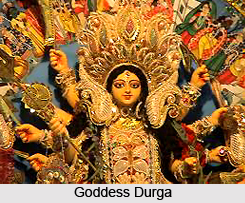 Lord Agni
Lord Agni
Lord Agni or Fire-God is a Hindu and Vedic Deva. This God is beneficent as well as destructive.
Lord Vayu
Pavan or Vayu, the God of wind or air, in Hinduism is mainly a deity which is worshipped for his power that controls nature.









